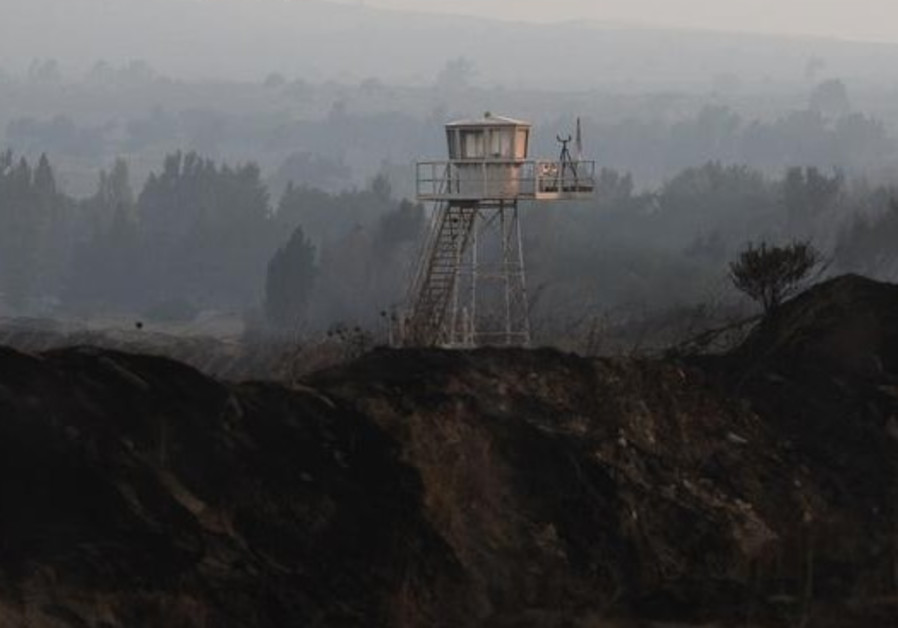Russia, uniquely, is in a position to push the Iranian vector off its current trajectory and prevent an all-out war.
The scorecard for those actively involved in the events over the skies of Israel and Syria on Saturday looks something like this: Israel lost an F-16 fighter jet and an aura of complete invincibility over Syria skies.
Iran lost a drone, the drone’s command and control center, and some of its military assets in Syria, the details of which are sure to emerge in the coming days.
Syria lost a number of air defense batteries, including vital air defense facilities around Damascus.
One country that is not on this immediate scorecard, but which stands to lose the most from the confrontation, is Russia. And what it stands to lose if Saturday’s confrontation turns out not to be a one-time event but rather a wider Israel-Iran-Syria-Hezbollah war, is its multi-billion dollar investment in Syria itself.
Russia moved forces into Syria in 2015 with one purpose in mind: Save Syrian President Bashar Assad. And since then, Moscow has spent billions of rubles and spilled Russian blood to do just that: Help the Assad regain control of the country from Syrian rebels and Islamic State.
And now, just as Moscow seems on the cusp of achieving its goals in Syria and serving as kingmaker in determining post-civil war arrangements, the last thing it needs or wants is for largescale Israeli military involvement that could threaten everything it hoped to gain.
Moscow wants to stabilize Syria right now. A confrontation between Israel and Iran there would badly destabilize the country and could cost Russia its most important asset in the region.
This Russian interest could be the key in keeping Saturday’s events from hurtling Israel, Iran, Syria and Hezbollah into a full-throttle war.
When Prime Minister Benjamin Netanyahu goes to Russia periodically to speak to Russian President Vladimir Putin, it is clear that he is not going only to express opposition to Iran’s entrenchment in Syria. The Russians are all too familiar with Israel’s position on this matter. Rather, he is also telling the Russian president what to expect if the Iranian entrenchment continues, letting him know how Israel will react.
And he does this for two reasons. The first is not to surprise the Russians. One reason the de-confliction mechanism set up when the Russians first became militarily engaged in Syria has worked, is that neither Israel nor Russia surprises the other. Russia knows where Israel’s forces are and Israel knows where the Russians are.
The other reason Israel wants the Russians to know exactly what it will do if the Iranians move to set up permanent military camp in Syria, is the hope that this knowledge will nudge Moscow into convincing the Iranians to stand back.
So far, this has not worked.
Russian diplomats, when asked whether Moscow can prevent Iran from setting up bases in Syria, say as if on cue that Iran is a sovereign country, and not a client state of Moscow that does its bidding.
Israel believes this is false humility and that the Russians could, if they wanted, have an impact on Iran’s actions in Syria. The Israel Air Force’s actions on Saturday might induce the Russians to be less humble and – after all – see if they can’t influence Iran to scale down its activity in Syria.
The message Jerusalem hopes Moscow will take from Saturday’s events is that they need to do more to restrain the Iranians.
Amos Yadlin, the head of the Institute for National Security Studies, said in a conference call put together by The Israel Project on Saturday night that the Iranians are determined to build their military force in Syria and Lebanon, and Israel is determined not to let that happen. These two vectors, he said, are on a collision course.
Russia, uniquely, is in a position to push the Iranian vector off its current trajectory and prevent an all-out war. Its own interests inside Syria indicate that this is something it should want to do.
But reality does not conform to theory, and whether Moscow will take action to rein in the Iranians, and what price it will ask for doing so, are the reasons Netanyahu meets – and talks – so often with Putin. Whether or not Israel is on the cusp of a new war in the North is to a large extent dependent on decisions the Russians will now make.




As we all know, Russians are chess players and think a few moves ahead. I would not be surprised if it fits their game quite well to get Israel and Iran to bash each other so that they can pick up the pieces when the fighting dies out. In both regions, there is a lot to gain, at least from the Russian point of view.